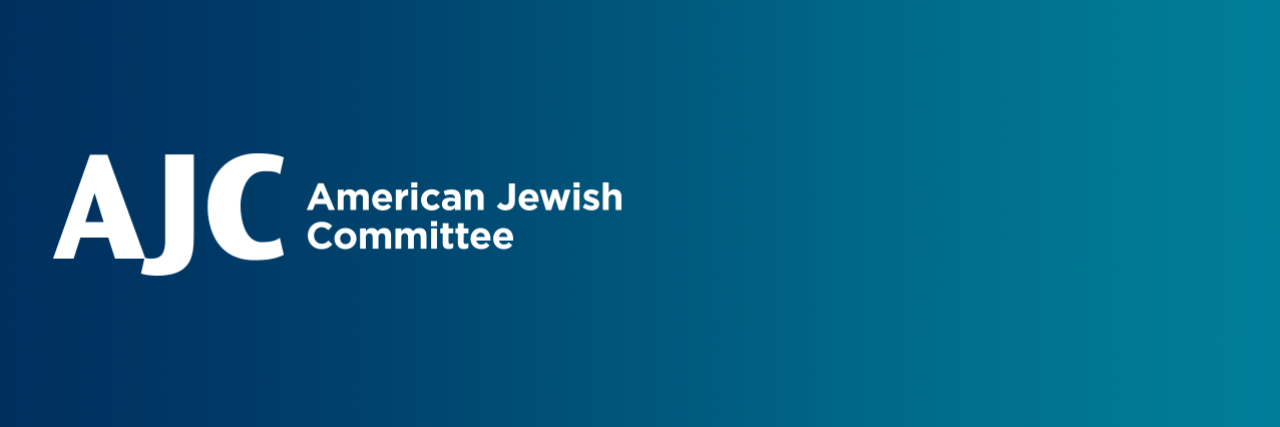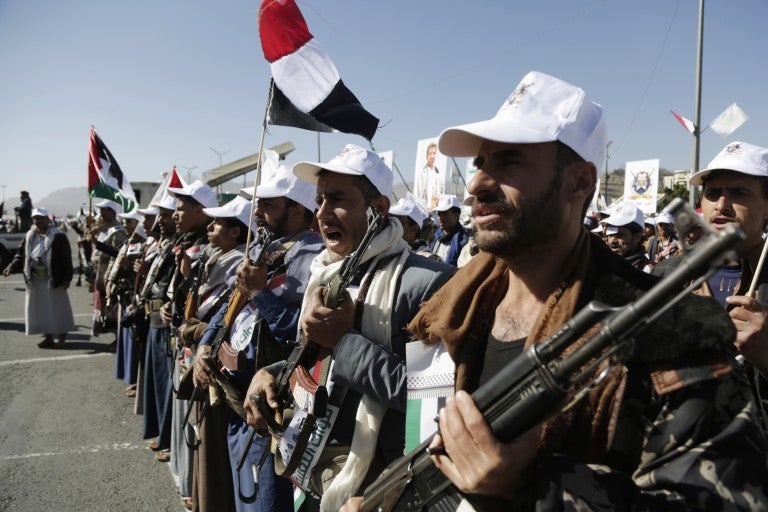December 8, 2022 — Brussels
This piece originally appeared in Newsweek.
By Anna-Michelle Asimakopoulou and Daniel Schwammenthal
We are at day 83 of the Islamic Republic's brutal crackdown of the protests. Iranian drones continue to kill Ukrainian civilians and destroy critical infrastructure. Assassins dispatched by Tehran try to kidnap and kill American citizens on U.S. soil, as well as Jewish leaders in Germany and France while the regime cranks up its nuclear escalation to near weapons grade level.
Every single bloody trail of Iran's internal oppression and external aggression leads to one organization: the Islamic Revolutionary Guard Corps (IRGC). This is why lawmakers from both sides of the Atlantic have urged the EU and fellow Western democracies to follow the U.S. lead and list the IRGC and their proxies, such as Hezbollah, as the terrorists they are.
Spearheaded by the Transatlantic Friends of Israel (TFI), 220 legislators from across Europe, the United States, and Canada call for more consistency to curb the "growing threat to regional and global peace posed by the Islamic Republic of Iran." Monday's meeting of EU foreign ministers, where Iran will again be on the agenda, is a good opportunity to do so.
The U.S. has recognized since 1984 that Iran is a "state sponsor of terrorism." And the regime's primary terror organ is the IRGC, whose mission is not that of a regular army to defend the country's borders. Instead, it is tasked with protecting the regime and exporting the Islamic revolution abroad. For the past four decades, it has spread terror in the region and beyond.
In Europe alone, the Tony Blair Institute for Global Change identified some 20 IRGC "activities" over the past 10 years. Either directly or through its wholly owned subsidiary Hezbollah, the IRGC has been linked to terror attacks, bomb plots and assassinations.
In January 2018, for example, German authorities raided the homes of 10 Iranian agents, reportedly tied to the IRGC, who were collecting information on possible Israeli and Jewish terror targets in Germany—including a Jewish kindergarten. Just last week, German media quoted state prosecutor sources as saying that the IRGC was behind a series of terror attacks against synagogues in Germany.
In addition, the IRGC has created, funded, and armed a Middle Eastern network of terror proxies, from Hezbollah in Lebanon to the Houthis in Yemen, spreading war and violence in the region. Iran has supplied Hezbollah alone with some 150,000 missiles, which the terror group aims at Israeli civilians while hiding them among Lebanon's own civilian population.
Hezbollah's bombing attack that killed five Israeli tourists and a Bulgarian in Burgas, Bulgaria, in 2012 led the EU to list the organization's "military wing" as terrorists, while leaving the "political" arm untouched. By making this artificial organizational distinction, which even Hezbollah itself rejects, the EU has avoided banning the group in its entirety. It can therefore continue to recruit and fundraise in those EU member states that haven't yet banned the group separately.
The IRGC and Hezbollah are also at the forefront of Iran's brutal campaign to keep the Assad regime in power in Syria. Since 2015, when Russia joined the fighting, the two regimes have partnered in unspeakable war crimes that have killed hundreds of thousands and turned millions into refugees.
Iran's growing alliance with Russia has been taken to the next level in Ukraine. At least since August, Iran has been supplying advanced drones to Russia for its terror war against Ukraine.\
These are not innocent weapons deliveries where Iran can claim it didn't know their intended use. Western media cited U.S. intelligence officials saying the IRGC sent trainers into occupied Ukraine to help their Russian allies operate the weapons. By targeting critical infrastructure, Russia and Iran are leaving hundreds of thousands without running water, electricity, and heat. Thousands may die because of these war crimes.
Consequently, the EU imposed last month sanctions against the IRGC's aviation arm and its commander for the drone supplies. While these are steps in the right direction, they are still far from commensurate with the threat Tehran poses.
Amid Iran's growing aggression abroad, nation-wide protests have broken out that have stunned the world. And, once again, we find the IRGC at the center of the regime's merciless oppression. IRGC units are leading the brutal crackdown on protests, particularly in the Kurdish and Azeri regions. Throughout the country, it is the Basij, paramilitary shock troops often advancing on motorbikes dressed in all black, that bludgeon and arrest protesters. The Basij, too, are a unit of the IRGC.
Despite the broken skulls young girls have suffered for the "crime" of showing their hair, these protesters refuse to stop. They seek nothing less than bringing down the mullahs—all of them, including the so-called reformers Europeans so long misjudged as a sign for hope.
As the EU is slowly adapting its Iran policy, it must contend with the following facts: You cannot protect Ukrainian civilians without containing its key ally and weapons supplier, Iran. You cannot call for peace in the Middle East without countering the region's biggest arsonist. And you cannot say you stand by the brave Iranian women and men fighting for freedom, and then refuse to punish their torturers.
Foreign policy is often the difficult choice between morality and interests. No such dilemma exists in the case of Iran. Weakening the regime by designating the IRGC as a terrorist organization will not only make Ukraine, Europe, and the wider Middle East safer, but above all, it will aid the long-suffering people of Iran.
Anna-Michelle Asimakopoulou is a member of the European Parliament from Greece and president of the Transatlantic Friends of Israel (TFI). Daniel Schwammenthal is the director of the AJC Transatlantic Institute and TFI secretary general.


